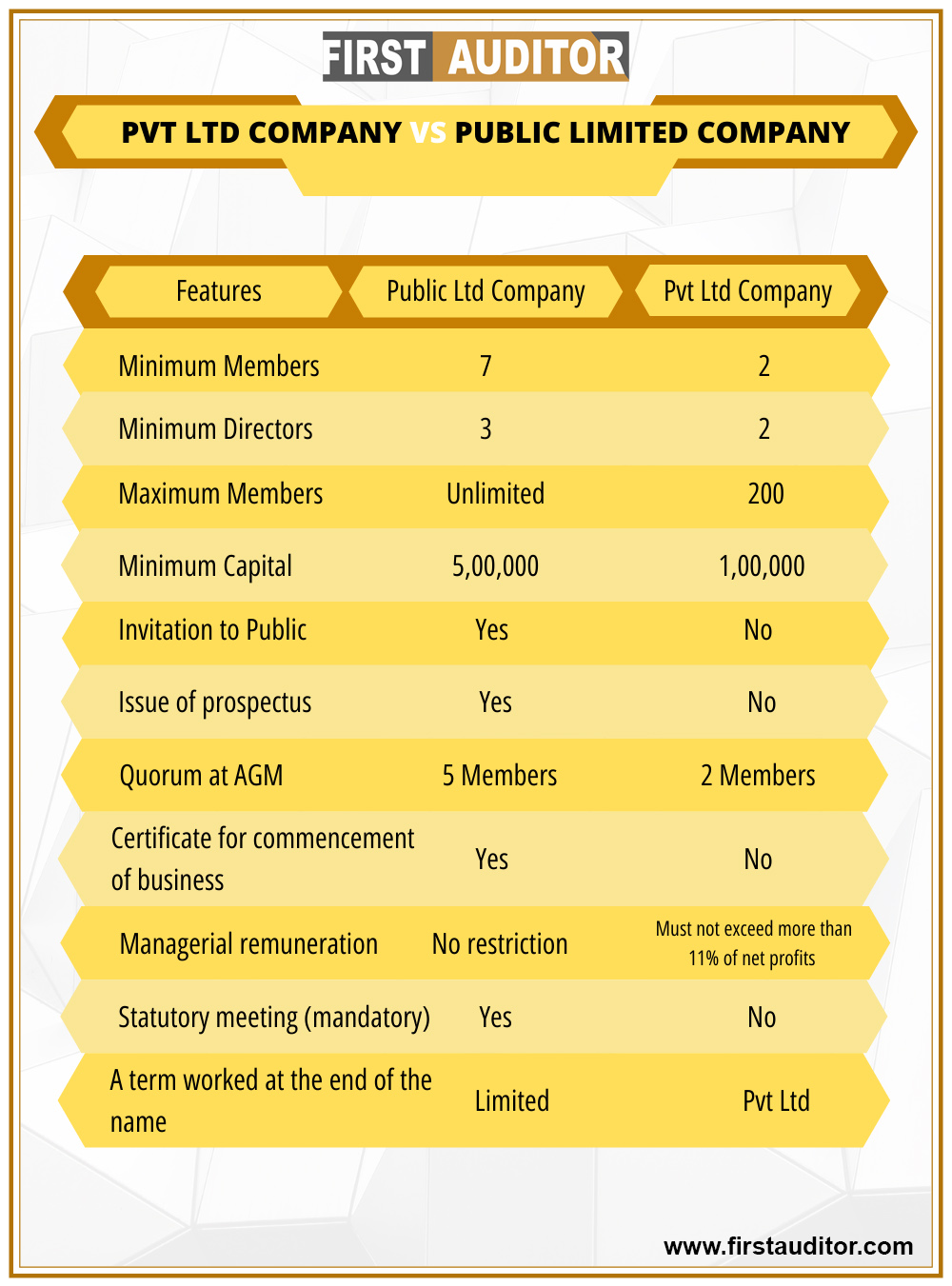A privately held firm for small businesses. In a private limited corporation, each member's responsibility is limited to the amount of shares that they each own. A private limited company's shares cannot be exchanged.

A business whose shares can be bought and sold by anybody and are traded on a stock exchange. A publicly held firm is another name for it. A public limited company is one that, as its name implies, sells firm shares to the broader public. A public limited company is one that offers firm shares to the general public and has limited liability, according to the Company's Act of 2013. Anyone can purchase shares of such a corporation through IPOs or stock market trading, respectively (Initial Public Offerings).
A public limited company's shareholders can easily transfer their shares. They only need to give the buyer the share certificate and file the share transfer form. A stake must be transferred extremely laboriously to another business structure.
The public limited structure has the benefit of allowing you to use shares to raise cash from the general public. However, doing so would necessitate being listed on a stock exchange. All public limited businesses are permitted to offer the general public fixed deposits, debentures, and convertible debentures.
Public limited businesses must make their audited statement of accounts public, notify regulatory agencies of any structural changes, and hold annual general meetings that are open to all shareholders. The organization gains a lot of trust from these compliance measures.
The conversion process involves holding a board meeting, obtaining shareholder approval, amending the Memorandum and Articles of Association, and filing the necessary forms with the Registrar of Companies.
Documents required include a special resolution passed by shareholders, updated Memorandum and Articles of Association, and Form MGT-14 for filing with the Registrar.
The conversion process can take 30-45 days, depending on the timely submission of documents and approvals from regulatory authorities.
Yes, a public company must have at least seven members, and it must adhere to certain capital requirements as specified by the Companies Act.
Converting to a public limited company allows for raising capital through public offerings, enhances credibility, and can facilitate mergers and acquisitions.